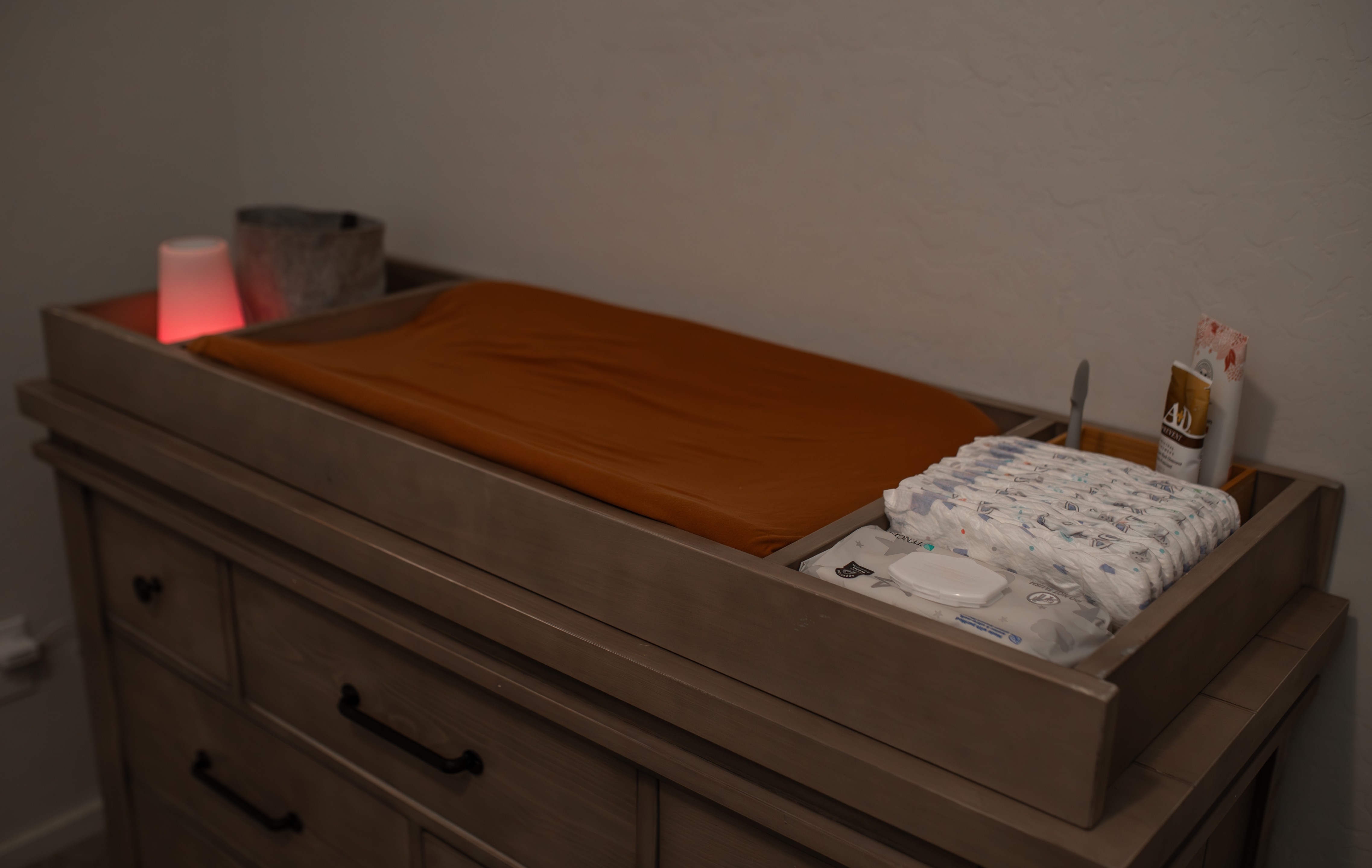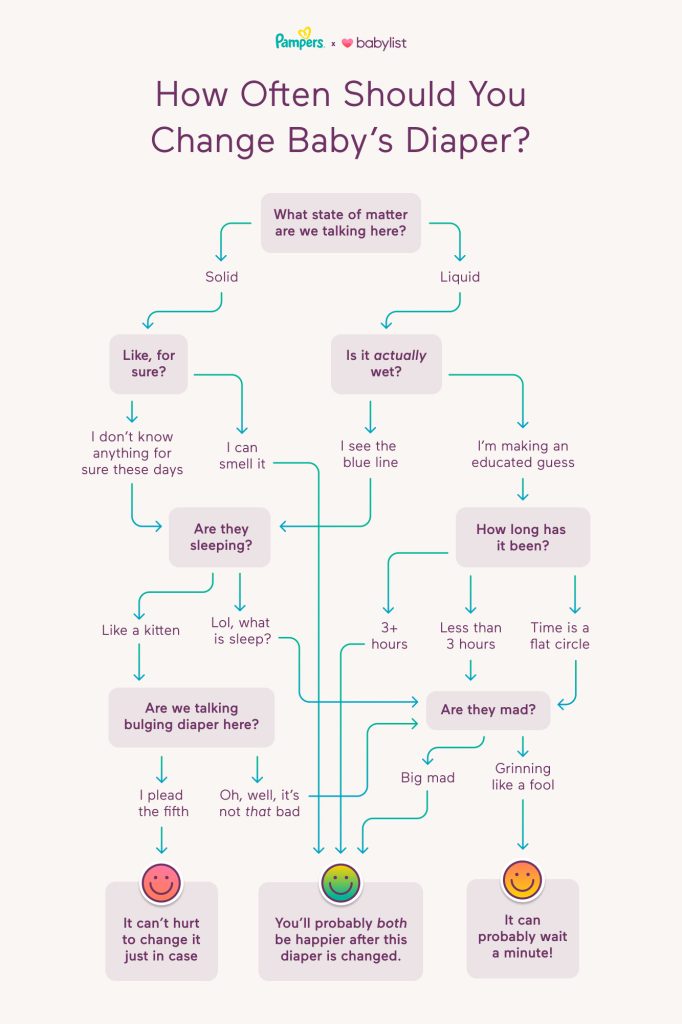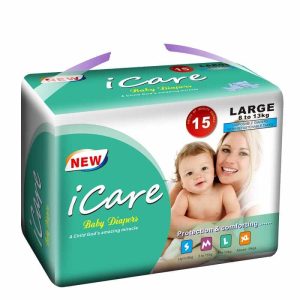Yes, you should change a baby’s diaper overnight if it is very soiled or wet. This prevents diaper rash and discomfort.
Ensuring your baby’s comfort during sleep is crucial for their well-being. Changing a diaper overnight can prevent skin irritation and promote better sleep for both the baby and parents. A heavily soiled or wet diaper can cause rashes, making the baby uncomfortable and disrupting their sleep.
Keeping the baby dry helps maintain healthy skin and ensures they sleep soundly through the night. Parents often worry about waking the baby, but a quick and gentle change can be done without much disturbance. Prioritizing diaper changes overnight can contribute to the baby’s overall health and happiness.

Credit: parenting.firstcry.com
Importance Of Overnight Diaper Changes
Changing your baby’s diaper overnight might seem cumbersome, but it has significant benefits. Ensuring your baby stays dry through the night helps in more ways than one. Below, we explore the importance of overnight diaper changes.
Impact On Baby’s Health
A wet or soiled diaper can cause skin irritations. Babies have sensitive skin, which is prone to diaper rashes. Overnight diaper changes reduce the risk of infections. Prolonged exposure to moisture can lead to fungal infections. Keeping your baby dry is crucial for their health.
Additionally, a dry diaper reduces the chance of urinary tract infections (UTIs). Babies with UTIs can experience fever and discomfort. Overnight changes can prevent these health issues.
Sleep Disruption Concerns
Parents worry about disrupting their baby’s sleep. However, a wet diaper can cause more significant sleep disturbances. Babies may wake up crying due to discomfort. Changing the diaper can ensure uninterrupted sleep.
Here are some tips to minimize sleep disruption:
- Use a night light to avoid bright lights.
- Keep diaper-changing supplies handy.
- Be quick and gentle during the change.
These strategies can help keep your baby comfortable without major sleep disruptions.
Signs Your Baby Needs A Change
Knowing the signs your baby needs a change during the night can help maintain their comfort and prevent rashes. Babies often need diaper changes at night, but identifying the right moment is key. Here are some important indicators that your baby may need a fresh diaper.
Wetness Indicators
Many diapers come with wetness indicators. These are lines or symbols that change color when the diaper is wet. If you see the indicator has changed, it’s a sign to change the diaper.
Another way to check is by gently pressing the diaper. If it feels heavy or soggy, it’s time for a new one. Always use a clean hand for this check.
Baby’s Discomfort
Babies often show signs of discomfort when their diaper is wet or soiled. They might cry, squirm, or wake up frequently. These behaviors can indicate that the diaper is causing irritation.
Check for redness or rashes on your baby’s skin. This can be a sign that they need a change. Keeping your baby dry can help prevent these issues.
| Indicator | Sign |
|---|---|
| Wetness Indicator | Color change on diaper |
| Heavy Diaper | Feels soggy to touch |
| Baby’s Behavior | Crying, squirming, waking up |
| Skin Condition | Redness or rashes |
Recognizing these signs can help you keep your baby comfortable throughout the night. Regular checks and timely changes can make a big difference in their sleep quality and skin health.
Choosing The Right Diaper For Overnight
Parents often wonder if they should change their baby’s diaper overnight. The right diaper can make a big difference. Understanding absorbency levels and ensuring comfort and fit can keep your baby dry and happy.
Absorbency Levels
Overnight diapers need high absorbency. They must hold more liquid than daytime diapers. This keeps your baby dry for longer hours. Look for diapers labeled “overnight” or “extra absorbent”. These are designed to handle more wetness.
| Brand | Absorbency Level |
|---|---|
| Pampers Baby Dry | High |
| Huggies OverNites | Very High |
| Luvs Triple Leakguards | Moderate |
Using a highly absorbent diaper reduces the need for overnight changes. It also helps prevent leaks and skin irritation.
Comfort And Fit
A diaper’s fit is crucial for comfort. An ill-fitting diaper may cause leaks and discomfort. Ensure the diaper has stretchy sides. This allows for better movement and a snug fit.
Check the diaper’s material. Soft, breathable fabrics are gentle on your baby’s skin. Avoid diapers with rough textures or harsh chemicals.
Here’s a simple checklist for comfort and fit:
- Ensure the diaper fits snugly around the legs.
- Check for a comfortable waistband.
- Use diapers with soft, breathable materials.
- Opt for brands with stretchy sides.
Choosing the right diaper can make a big difference in your baby’s sleep quality.
Tips For Minimizing Overnight Changes
Waking up in the middle of the night to change a diaper can be exhausting for both you and your baby. By following some simple tips, you can minimize overnight diaper changes and ensure a more restful night for everyone.
Pre-bedtime Diaper Routine
Establishing a solid pre-bedtime diaper routine is essential. This ensures your baby stays dry throughout the night. Follow these steps to create an effective routine:
- Change the diaper: Always change the diaper right before bedtime.
- Use a high-absorbency diaper: Opt for diapers specifically designed for overnight use.
- Apply diaper cream: Use a barrier cream to protect your baby’s skin.
- Check for proper fit: Make sure the diaper fits snugly to prevent leaks.
Using Diaper Liners
Diaper liners can be a game-changer for minimizing overnight changes. They add an extra layer of protection and absorbency. Here’s how to use them effectively:
- Select the right liner: Choose liners that are highly absorbent and fit well within the diaper.
- Place correctly: Make sure the liner is centered and flat inside the diaper.
- Check for bunching: Ensure the liner does not bunch up, as this can cause leaks.
Using these tips, you can reduce the need for frequent overnight diaper changes. This helps everyone get a better night’s sleep.
Managing Diaper Rash At Night
Nighttime can be challenging for babies with diaper rash. This condition can cause discomfort and disrupt sleep. Proper management is crucial to ensure your baby stays comfortable overnight.
Preventive Measures
Preventing diaper rash starts with keeping the diaper area clean and dry. Here are some effective preventive measures:
- Change diapers frequently to avoid prolonged exposure to moisture.
- Use a barrier cream with zinc oxide to protect the skin.
- Choose diapers that are highly absorbent and fit well.
- Allow diaper-free time during the day to let the skin breathe.
- Avoid using scented wipes; opt for unscented, alcohol-free versions.
Soothing Treatments
If your baby already has diaper rash, soothing treatments can help. These treatments aim to reduce irritation and promote healing:
| Treatment | Description |
|---|---|
| Oatmeal Baths | Add oatmeal powder to the bathwater. It soothes irritated skin. |
| Aloe Vera Gel | Apply a thin layer of aloe vera gel. It cools and heals. |
| Breast Milk | Dab a little breast milk on the rash. It has healing properties. |
| Hydrocortisone Cream | Use a small amount if the rash is severe. Consult a doctor first. |
Remember, always consult your pediatrician before trying new treatments. Your baby’s comfort and health are paramount.
%5B66%5D%20(2).webp)
Credit: www.smartsleepcoach.com
Balancing Diaper Changes With Sleep
Balancing diaper changes with sleep can be tricky for new parents. Babies need their rest, but wet diapers can cause discomfort. This section explores how to manage nighttime diaper changes while ensuring your baby sleeps well.
Creating A Gentle Routine
Establishing a gentle routine helps minimize sleep disturbances. A calm environment is key. Use dim lights and soft sounds during diaper changes.
- Use a nightlight to avoid bright lights.
- Keep all diaper supplies within reach.
- Change diapers before a feeding session.
Avoid engaging with your baby too much. This keeps them in a sleepy state. Whisper and limit eye contact during changes.
Ensuring Baby’s Rest
Ensuring your baby’s rest is essential for their growth. A dry diaper contributes significantly to this. Choose the right diaper for overnight use.
| Diaper Feature | Importance |
|---|---|
| High Absorbency | Keeps baby dry longer |
| Comfortable Fit | Prevents leaks and irritation |
| Breathable Material | Reduces the risk of rashes |
If your baby sleeps through the night, check for leaks in the morning. Always use a barrier cream to protect their skin.
Parental Sleep Considerations
Getting enough sleep as a new parent is essential. Waking up to change your baby’s diaper can disrupt your sleep. This section explores how nighttime diaper changes affect parents’ rest and offers tips for better sleep.
Impact On Parents’ Sleep
Nighttime diaper changes can break your sleep cycle. Interrupted sleep makes you feel groggy and tired during the day. It can also impact your mood and overall health. Here are some common sleep disruptions:
- Waking up frequently
- Difficulty falling back asleep
- Feeling anxious about baby’s comfort
These disruptions can affect your productivity and well-being. Ensuring your baby sleeps comfortably can help you sleep better too.
Strategies For Better Rest
There are several strategies you can use to improve your sleep:
- Use overnight diapers: These are extra absorbent and reduce the need for changes.
- Establish a bedtime routine: A consistent routine helps both you and your baby sleep better.
- Keep supplies handy: Have diapers and wipes near the bed for quick changes.
- Share responsibilities: Take turns with your partner to handle nighttime changes.
These strategies can help minimize disruptions and improve your overall sleep quality.

Credit: takingcarababies.com
When To Consult A Pediatrician
Changing your baby’s diaper overnight can be tricky. Sometimes, you may wonder if you should seek a pediatrician’s advice. It is crucial to know when to consult a pediatrician to ensure your baby’s health and comfort. Below are some key situations where professional guidance is essential.
Persistent Diaper Issues
Persistent diaper issues can be a cause for concern. Diaper rash that does not improve with regular care needs attention. If the rash lasts more than a few days, consult your pediatrician. They can identify if there is an underlying cause.
If your baby’s skin seems more sensitive than usual, it could indicate an allergy. Frequent leaks and blowouts might also signal that the diaper size or type is not suitable. Your pediatrician can recommend the best diapers for your baby’s needs.
Health Concerns
Health concerns are another critical reason to consult a pediatrician. If your baby has a fever or shows signs of discomfort during diaper changes, seek medical advice. These symptoms could indicate an infection or other health issues.
Unusual stool color or consistency can also be a red flag. If you notice blood, mucus, or very watery stools, it’s essential to talk to your pediatrician. They can help determine if there is a digestive issue or infection.
Lastly, if your baby is not gaining weight as expected, it might be related to diapering or feeding issues. Your pediatrician can offer guidance on proper feeding and care routines.
| Signs | Actions |
|---|---|
| Persistent diaper rash | Consult pediatrician |
| Frequent leaks | Check diaper size/type |
| Fever or discomfort | Seek medical advice |
| Unusual stool | Talk to pediatrician |
| Poor weight gain | Get professional guidance |
Always keep an eye on your baby’s health and comfort. Your pediatrician is there to help ensure your baby stays happy and healthy.
Frequently Asked Questions
Should I Wake My Baby To Change Diaper?
It’s generally not necessary to wake your baby for a diaper change. If the diaper is not overly wet or soiled, letting your baby sleep can be more beneficial for both of you.
Can A Baby Sleep In A Wet Diaper Overnight?
A slightly wet diaper won’t harm your baby overnight. However, if the diaper is soaked or soiled, it can cause discomfort and disrupt sleep.
How Often Should I Change Diapers Overnight?
Changing diapers before bedtime and once during the night should suffice. This helps keep your baby comfortable and prevents diaper rash.
Are Overnight Diapers Necessary?
Overnight diapers are designed to handle more moisture. They can be helpful for keeping your baby dry and comfortable during longer stretches of sleep.
Conclusion
Changing your baby’s diaper overnight can improve their comfort and sleep quality. Evaluate your baby’s needs and make adjustments as necessary. Prioritizing your baby’s well-being ensures a restful night for both of you. Remember, every baby is unique, so observe and adapt to their specific requirements for the best results.




